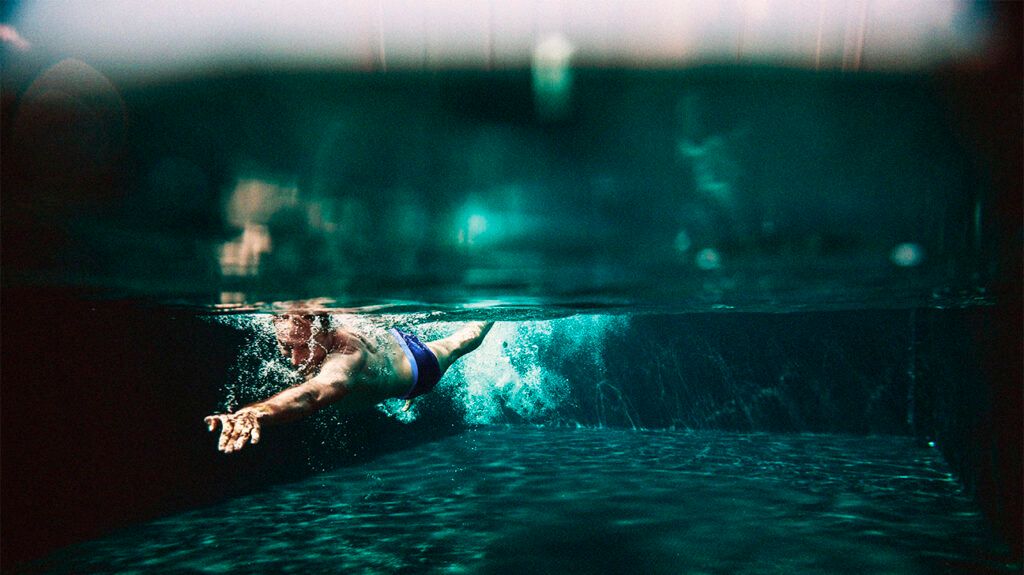Swimming in pool or ocean water may alleviate symptoms during eczema flares for some individuals. However, for others, it may worsen symptoms.
Various factors may cause eczema flare-ups, including stress, allergens, and environmental triggers.
Certain activities, including swimming water, may also trigger a flare of symptoms for some people. To avoid or manage symptoms flaring, a person needs to identify potential triggers and treat symptoms with prescribed methods.
This article looks at the differences between pool and ocean water for eczema and other potential triggers while swimming. It also discusses preventing, treating, and managing flares and when to contact a doctor.

Many environmental triggers, such as swimming in pool or ocean water, may affect eczema. Read more about the differences below.
Pool water
According to the American Academy of Dermatology Association (AAD), chlorine may dry out the skin of those with eczema. This may lead to a flare if the skin is overly dry.
The National Eczema Society suggests that skin dryness is likely to occur due to the high acidity of pool water.
However, since chlorine is a bleach, it may have benefits for some people’s eczema. A
Additionally, the National Eczema Association (NEA) corroborates that swimming in a chlorinated pool may have a soothing effect on other people’s eczema due to its disinfectant properties.
Read more about bleach baths for eczema.
Ocean water
A 2016 study used ocean water to treat people with eczema. The participants showed improvements in the following eczema symptoms:
- skin inflammation
- lichenification, which refers to thickened or hardened skin
- cracking of the skin
The effects of ocean saltwater on eczema may vary. It may be soothing for some individuals yet painful and potentially eczema-triggering for others. Anecdotally, people report that ocean water may sting if skin is broken.
A person can discuss ways to prevent and treat eczema flares with a medical professional.
The NEA suggests there are other potential triggers while swimming.
For example, the swimsuit a person wears may also be a potential trigger for eczema. Experts recommend using a gentle detergent to wash swimwear before use to help reduce the effect of chemicals from the production of the fabrics.
Moreover, research also suggests goggles and swim caps comprising silicone are less likely to cause an eczema flare-up than latex or rubber.
After physical activity, people should also change out of wet swimsuits, as this may further irritate the skin.
The NEA recommends that people remove their wet swimsuits and put on dry clothes after swimming. People also need to avoid swimming if they have eczema or a skin infection.
They can also take the following steps to avoid flare-ups:
- alternating swimming pools, as these may involve different chemicals
- swimming in a saltwater pool or swimming in fresh or ocean water, especially in the summer months
- finding out when people add chlorine to the swimming pool to avoid swimming immediately after
- avoiding sitting at the poolside for long periods, as there is still exposure to chlorinated fumes from the pool
- staying hydrated before and after swimming
- remembering to moisturize the skin before and after swimming
When a person has been swimming in pool or ocean water, they need to maintain their eczema skin care routine. They can moisturize as usual, particularly before and after swimming. They also need to shower in freshwater straight after swimming.
The NEA suggests that when a person swims, even if the temperature of the water is cool, their body heats up and sweats while swimming. People can hydrate themselves before swimming to ensure they maintain their fluids.
Further treatment methods include:
- applying emollient cream or ointment before entering the pool
- showering thoroughly after swimming and applying emollient after drying off
- applying sunscreen suitable for eczema after emollient
People can contact a doctor if they notice their eczema flares while swimming. Possible signs of a flare include:
- itchy, red, brown, purple, or gray skin
- weeping skin
- the presence of a skin infection
- open sores or raw skin
A doctor will be able to recommend additional methods for managing skin when swimming and how to treat an eczema flare if it occurs.
The effect of swimming in pool or ocean water on eczema symptoms may differ. For some, it may help ease it, but for others, it may irritate their skin.
Research shows pool water may cause skin dryness due to the addition of chlorine to pool water. However, it may benefit some people’s skin due to its antibacterial properties for eczema.
To prevent eczema flares while swimming, people need to avoid swimming when skin is flaring, remove wet swimsuits after use, and trial how long and what type of water causes the most irritation.
